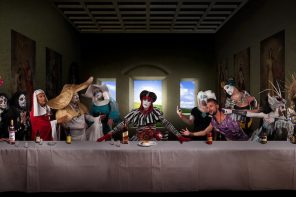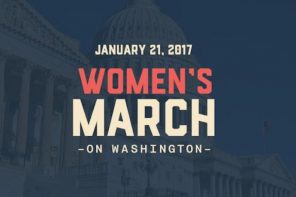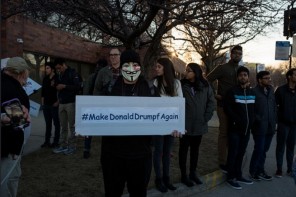You don’t have to be part of the religious right to use religion to sacralize American national identity. Just take a look at the Born Again American campaign featuring a music video and an opportunity to join in as a “Born Again American.” I was the 5,451,536th visitor to the site which only launched on January 18, 2009, the opening of the Obama era. Change you can believe in, or The more things change, the more they stay the same?
The campaign is the brainchild of Norman Lear, the TV producer of megahits All in the Family and The Jeffersons, and a longtime liberal activist. In 1980 he founded the People for the American Way, an organization designed to counter the growing influence of the religious right. While this latest initiative is a vehicle for his liberal political values, it has taken on a far more religious cast, reflecting the post 2004 shift on the left to “get religion.”
“This is,” says Lear, a Jewish secularist, “a very positive development.”
“The best conversation going,” he says, “is what’s it all about ultimately, what are we doing here? I want in. I recognize it as the most profound conversation.”
Refusing to cede religion to the right, Lear is jumping in with his own liberal brew of religion, nationalism, and politics.
To do this, Lear enlisted the help of actor and composer Keith Carradine to write the music and lyrics for “Born Again American.” Just imagine a liberal clone of Lee Greenwood’s God Bless the USA, with a generous dose of Up With People mixed in. The genre is country, and the lyrics and music a rousing populist invitation to reclaim America’s soul.
The song narrates the story of an unemployed veteran from Iraq whose job has been outsourced to China via Washington. Outraged at the greedy capitalists, stagnating wages, high unemployment, and fundamentally unequal playing field, the song challenges and inspires fellow Americans to fight back and return America to her true path.
Religious imagery and resonances abound. The very title of the song and initiative are a play on the defining metaphor for evangelical Christianity, to be reborn in Christ. From “sacred vows” to being “re-ordained,” to hearing “the calling,” the lyrics invoke religious sensibilities to inspire a deeper and truer patriotism. As the rousing rendition of the recurring chorus goes:
I’m a Born Again American, conceived in Liberty
My Bible and the Bill of Rights, my creed’s equality
I’m a Born Again American, my country ’tis of me
And everyone who shares the dream from sea to shining sea.
Opening with a country singer in a cowboy hat in front of the Jefferson Memorial, the video quickly moves to other iconic American sites like Independence Hall, the Statue of Liberty, and Mt. Rushmore. It strives for racial, ethnic, and especially religious diversity, with church choirs, a Jewish cantor, a Catholic priest, and a Muslim belting out the words (despite the oddity of the latter’s embracing them) “my Bible and the Bill of Rights.”
Some speculate that Carradine’s original rendition of the song which goes “My Bible is the Bill of Rights, my creed is living free,” may have originally enticed the participants. Although that may explain the Muslim’s reference to the Bible, it actually makes it harder to account for many others who would be less likely to join in even greater nationalistic reduction of their faith.
The commitments to equality and economic justice that ring through the video are inspiring, though they play upon (and with) a fusion of religion and nation that should raise all sorts of red flags. There is a long lineage of linking religion and national identity in the United States. In an earlier era, though continuing today especially in some segments of the evangelical community, Protestantism and American identity were deeply fused, sacralizing the nation as it marginalized those from other religious traditions or the nonreligious. We seem to be increasingly moving from this version of religious nationalism to another that rests upon a celebratory account of religious diversity. But this diversity is managed and contained in and through its harnessing to the interests of the nation.
The celebration of American religious diversity in this video is subordinated to a common loyalty to the nation-state, not to religious freedom. The more universal impulses of religious traditions, whether expressed through the idea of God, Allah, the Cosmos, or the principle of being, are nowhere in sight. The transnational or global sensitivities that religious traditions are increasingly vehicles for are not on display. Instead, religious diversity is hijacked to promote America and its values as if the latter could serve as the ultimate point of reference.
Progressives especially must become more alert to the way in which American power and interests are driven less by a sense of Protestant privilege, as in the past, but by a sense of a multireligious nation that is at the vanguard of modern progress. The advantages of this evolution in the American civil religion tradition at home may blind us to the pernicious effects of this updated version of religious nationalism abroad.
We live in a time when the cultivation of a more global identity and ethic is imperative. That is why I can’t help feeling that while the populist and progressive chords in the Born Again initiative are pitch perfect, the religious nationalism through which they are amplified creates a moral cacophony that should put us on guard.




